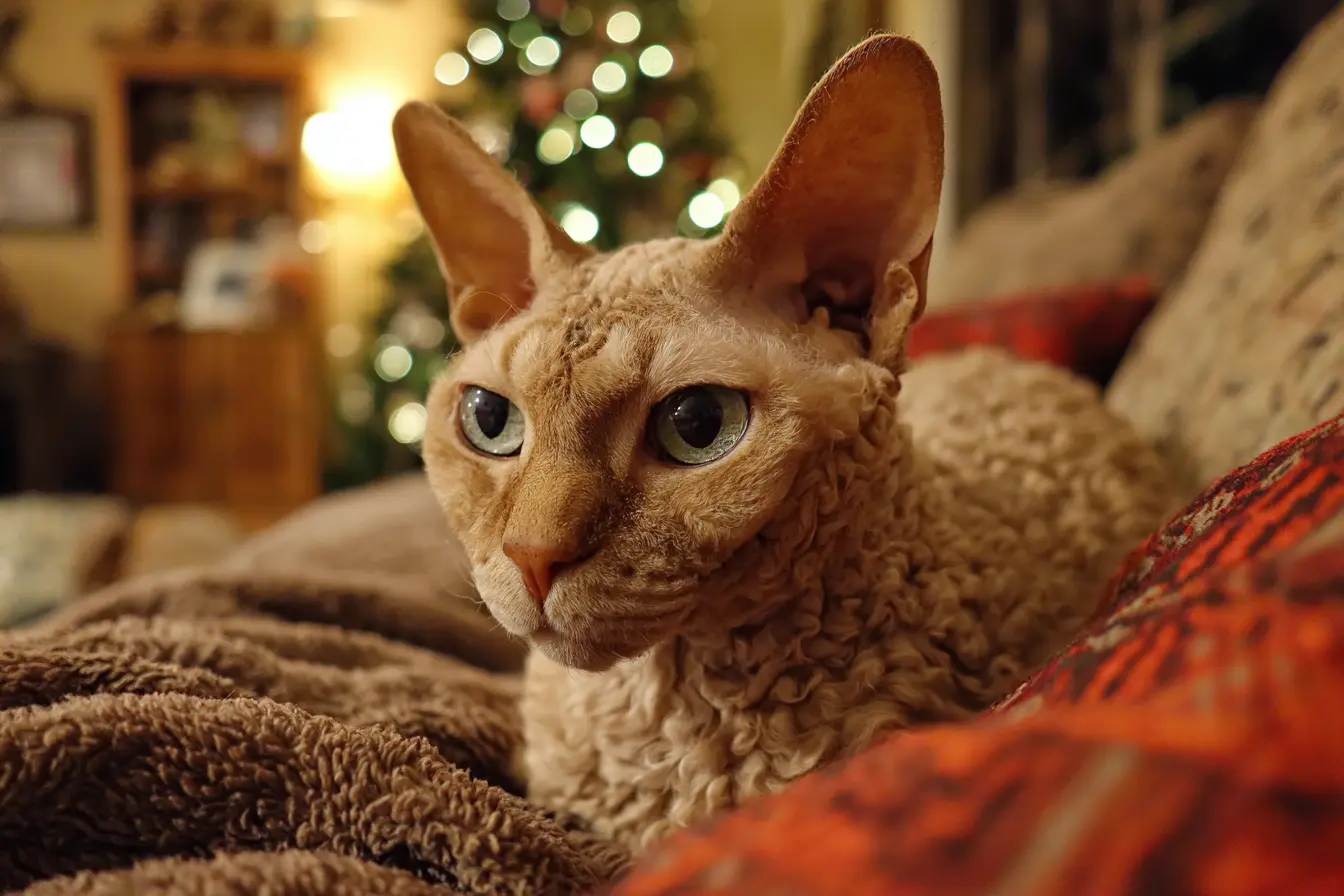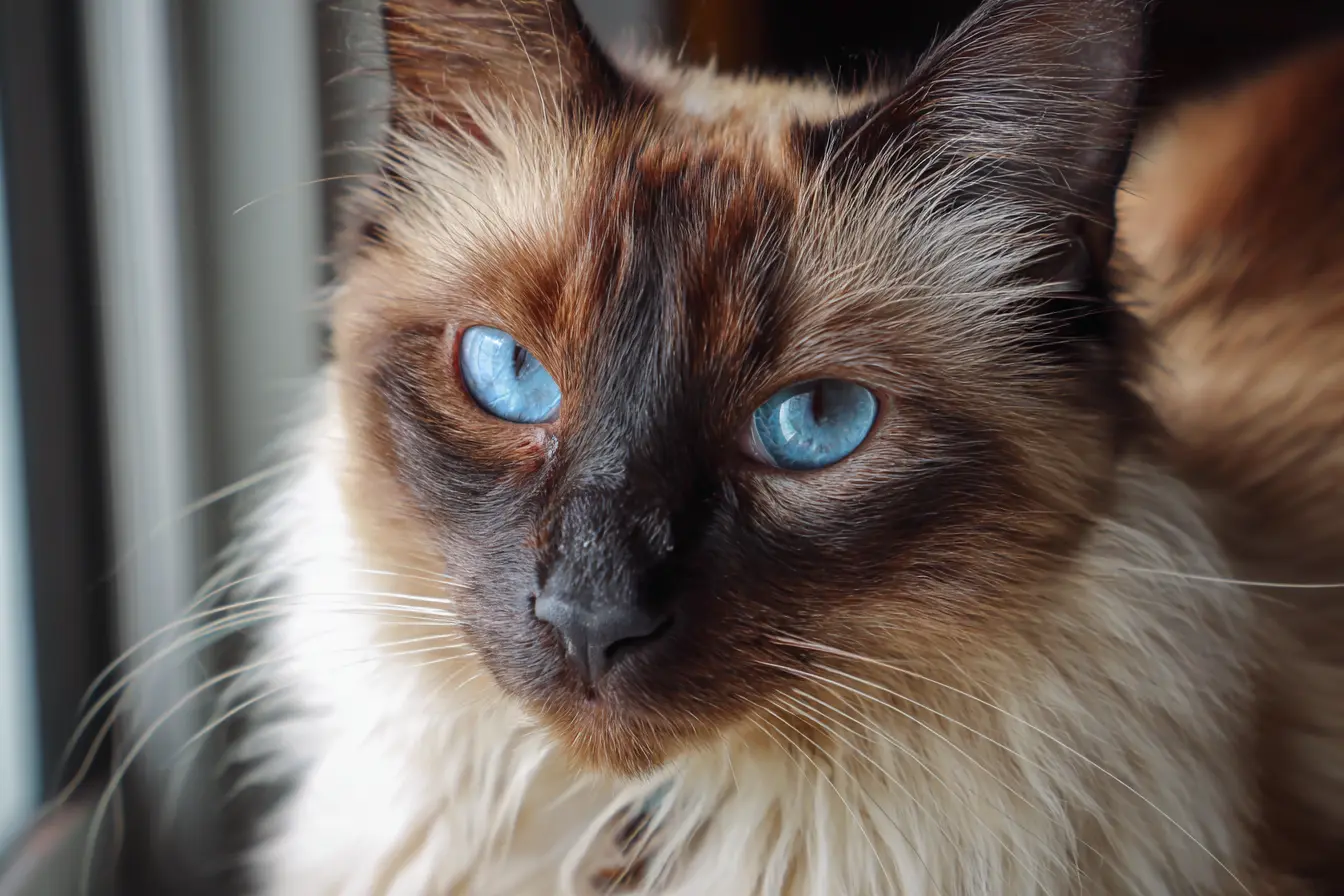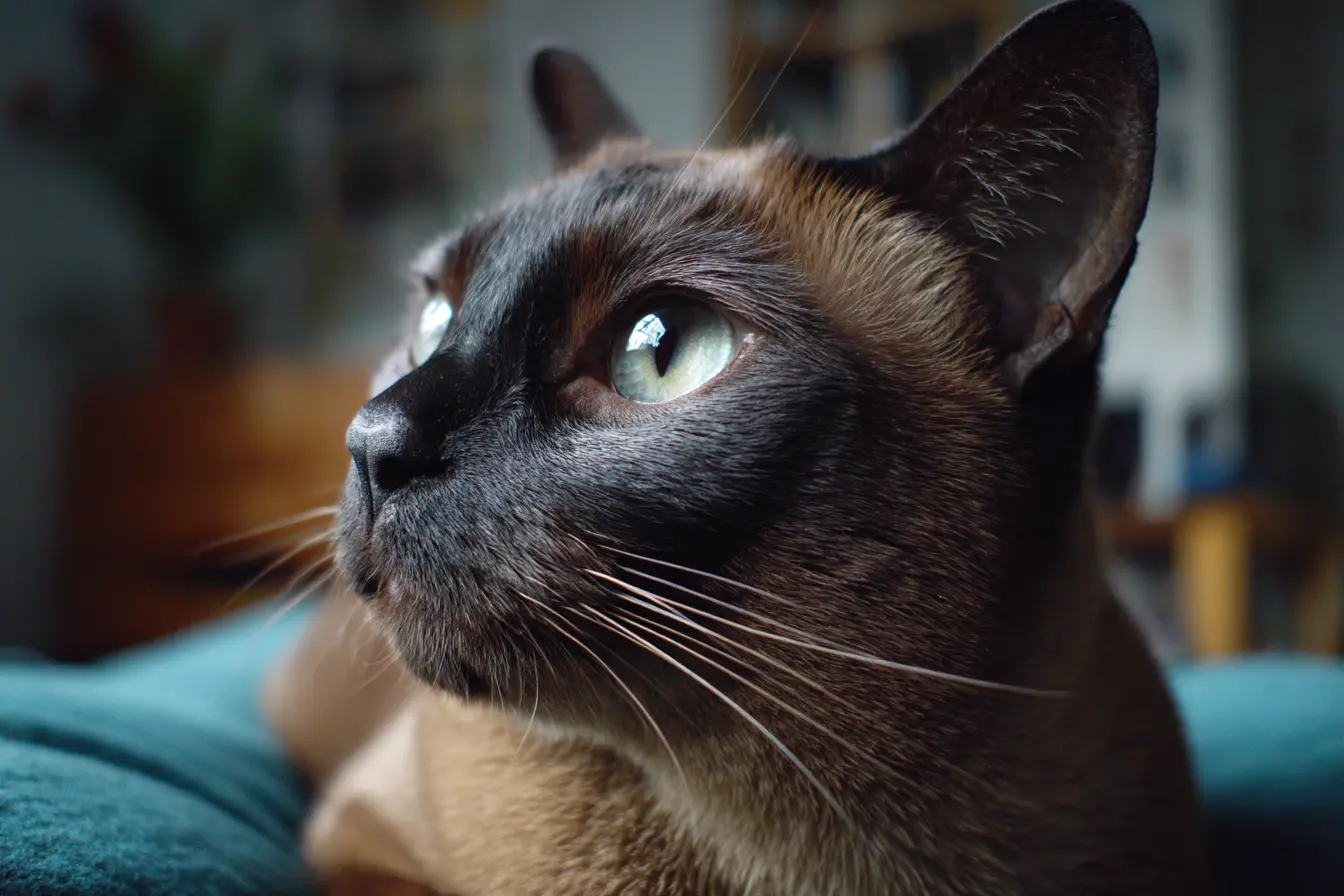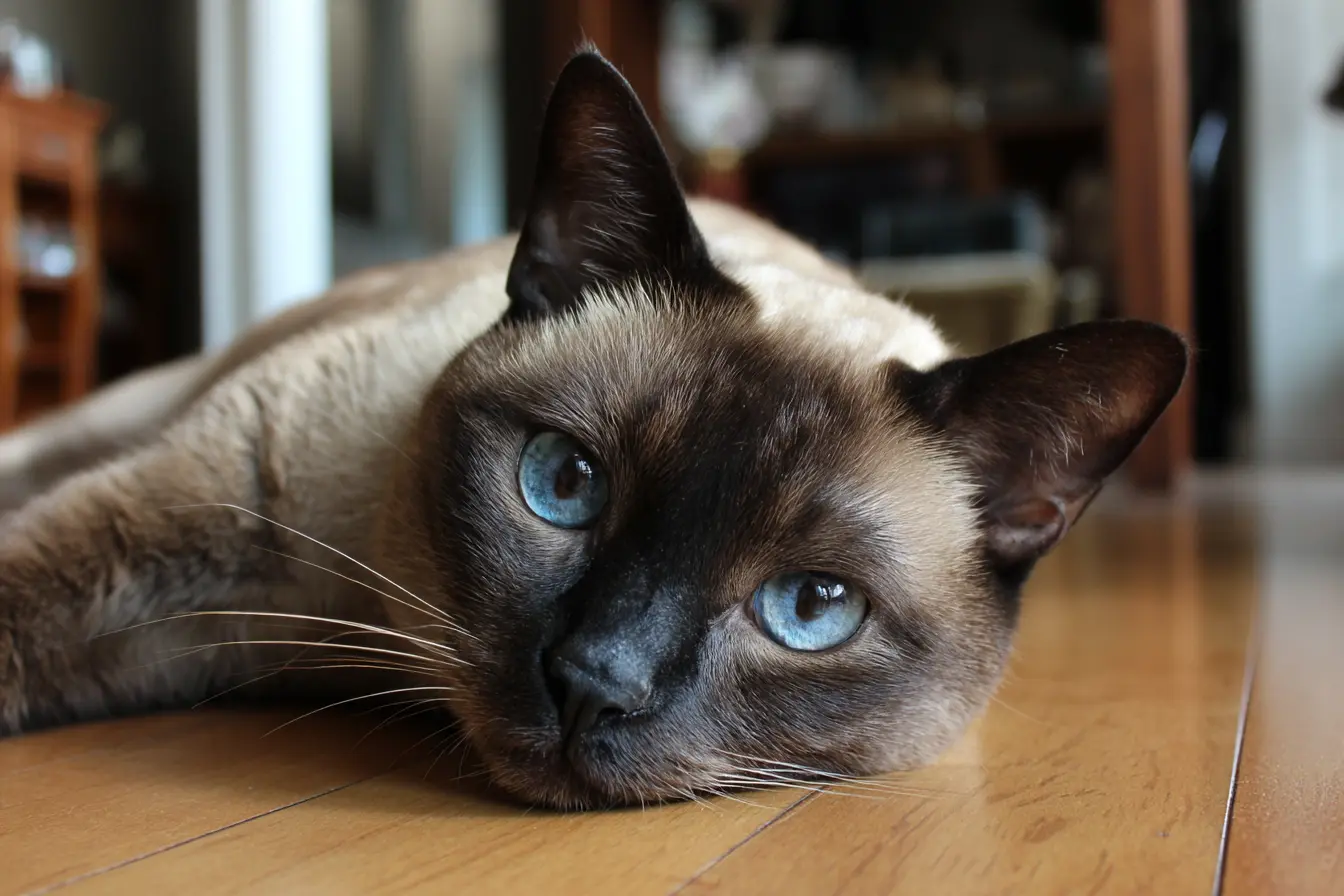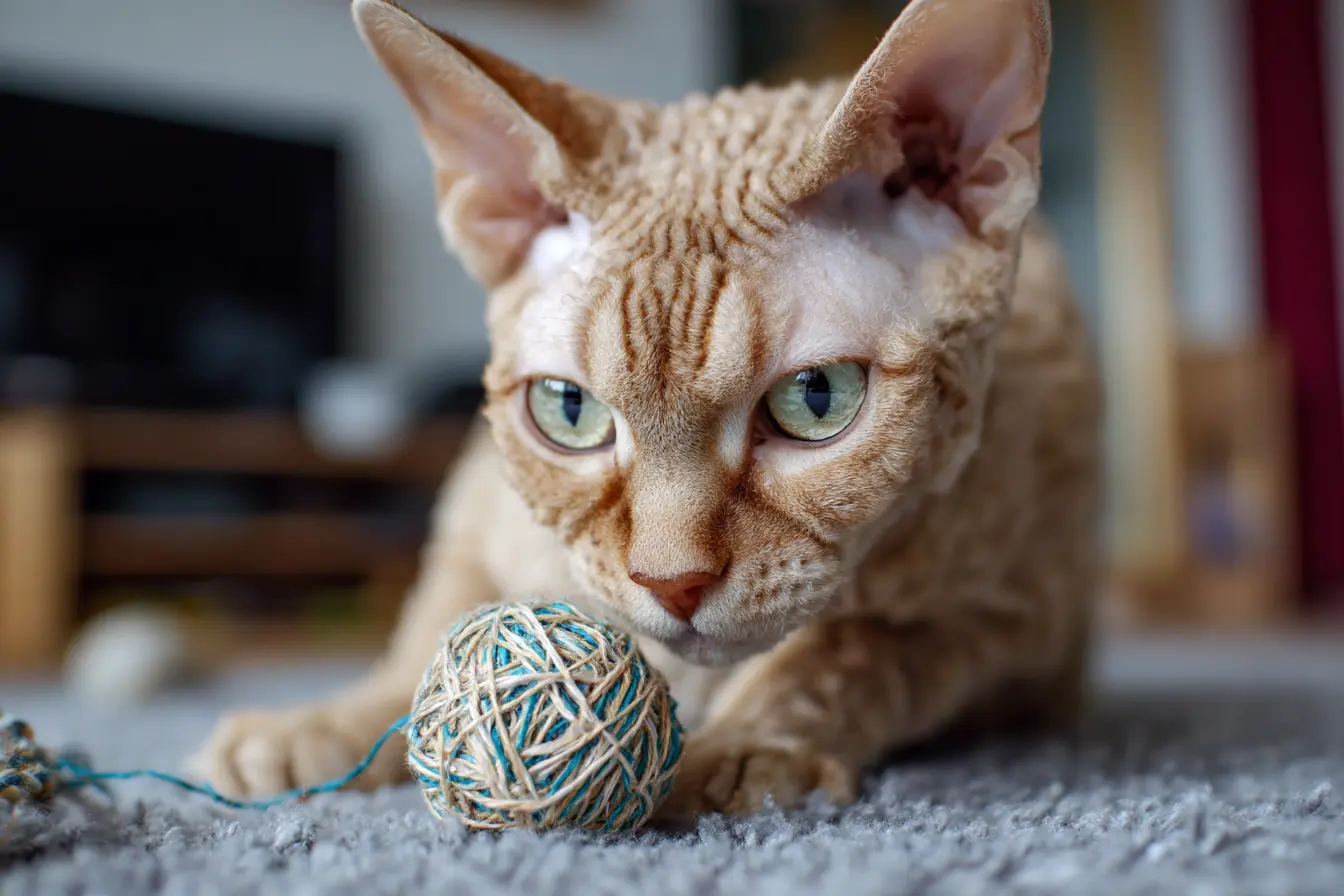
The Devon Rex Cat: A Whimsical Companion with a Playful Spirit
Choosing to welcome a cat into your life is a rewarding decision, and for those drawn to unique appearance and engaging personalities, the Devon Rex may be the perfect match. With its large ears, mischievous expression, and soft, curly coat, the Devon Rex stands out in both looks and character. This guide provides a comprehensive overview of the Devon Rex, exploring its history, temperament, care needs, and more to help you decide if this delightful breed is right for your home.
Breed History and Characteristics
The Devon Rex originated in Devon, England, in the 1960s. The breed's distinctive curly coat was the result of a natural mutation discovered in a stray kitten named Kirlee. Although initially thought to be related to the Cornish Rex, the Devon Rex was found to have a different gene mutation and was developed as a separate breed.
Devon Rex cats are small to medium in size with a slender, muscular build. Their most iconic features include:
- Oversized, low-set ears
- Prominent cheekbones
- Large, expressive eyes
- Soft, wavy or rippled coat that lies close to the body
The coat varies in density and wave, and while it gives the cat a unique texture, it can be delicate and sparse in some areas.
Temperament
Devon Rex cats are known for their playful, affectionate, and people-loving nature. They are often described as "monkey-like" for their love of climbing, jumping, and perching in high places. They thrive on human interaction and are likely to follow their owners from room to room, always eager to be part of the action.
Their social and friendly demeanour makes them ideal companions for families, singles, and even homes with other pets. Devon Rex cats enjoy being held, cuddled, and will often curl up on shoulders or laps. They are highly intelligent and curious, always looking for something fun to do or explore.
Health and Lifespan
The Devon Rex is generally a healthy breed, with a typical lifespan of 12 to 16 years. However, like many pedigree cats, they can be prone to certain genetic health conditions, including:
- Hereditary myopathy (a muscle weakness disorder)
- Hypertrophic cardiomyopathy (HCM)
- Skin conditions, such as Malassezia dermatitis
- Patellar luxation (slipping kneecaps)
Regular veterinary check-ups and early screening can help manage potential issues. Choosing a responsible breeder who tests for known conditions is crucial for long-term health and wellbeing.
Care and Grooming
Despite their appearance, Devon Rex cats are relatively low-maintenance when it comes to grooming. Their coats require minimal brushing, and in fact, excessive grooming can damage the fragile hairs. A gentle rub with a soft cloth or hand can help keep their coat tidy.
Due to their coat’s texture, some Devon Rex cats may accumulate oils on the skin, so occasional bathing may be necessary — more often than with other breeds. Their large ears can also collect dirt and wax and should be checked and cleaned regularly.
Basic care, including dental hygiene, nail trimming, and routine health checks, should also be part of their grooming routine.
Living Environment
Devon Rex cats adapt well to various living situations, from busy family homes to smaller urban flats. They are indoor cats by nature and should be kept safe from harsh weather and outdoor dangers, as their thin coats offer little protection from the elements.
They require an enriching environment with plenty of toys, climbing structures, and interactive play. These cats love high places and will appreciate shelves, cat trees, and window perches. They are also known to enjoy warmth — whether from a sunny window, a cosy blanket, or even snuggling under the covers.
Training and Socialisation
Devon Rex cats are quick learners and highly trainable. Their intelligence and eagerness to please make them excellent candidates for tricks, puzzle feeders, and clicker training. Some owners have even trained their Devon Rex to walk on a lead.
Early socialisation helps them maintain their friendly and outgoing personality. Exposure to people, other pets, and varied experiences will help ensure they remain confident and adaptable adults.
Considerations for Prospective Owners
- Coat Care: The Devon Rex’s coat requires gentle care and occasional bathing due to skin oil build-up.
- Companionship Needs: These cats are very social and should not be left alone for long periods.
- Energy Level: High energy and curiosity demand a stimulating environment and regular play.
Conclusion
The Devon Rex is a unique and enchanting companion, combining an elf-like appearance with a heart full of affection. Their intelligence, playfulness, and love for human company make them ideal pets for those seeking an interactive and loving feline friend.
If you are captivated by the Devon Rex’s whimsical charm and can meet their social and environmental needs, this breed may be the perfect addition to your household. Visit reputable breeders or rescue centres to meet Devon Rex cats in person and experience their delightful personalities for yourself. As always, remember that adopting a cat is a lifelong commitment that should be made with care, compassion, and responsibility.
Vets near you
Speciality vets
- Aquatics vet specialists
- Birds vet specialists
- Camelids vet specialists
- Cats vet specialists
- Cattle vet specialists
- Deer vet specialists
- Dogs vet specialists
- Equines vet specialists
- Exotic vet specialists
- Goats vet specialists
- Pigs vet specialists
- Poultry vet specialists
- Sheep vet specialists
- Small Mammals vet specialists
- Wild vet specialists
Vet facilities
- Accessible by public transport
- Blood testing
- Car park nearby
- Client car park
- Dentistry
- Diagnostic imaging
- Disabled public access
- Flea and worm treatments
- Microchipping
- Mobile services
- Neutering
- Open at weekends
- Out-of-hours service
- Referral interests
- Referrals only
- Street parking outside
- Toilets available
- Vaccinations
